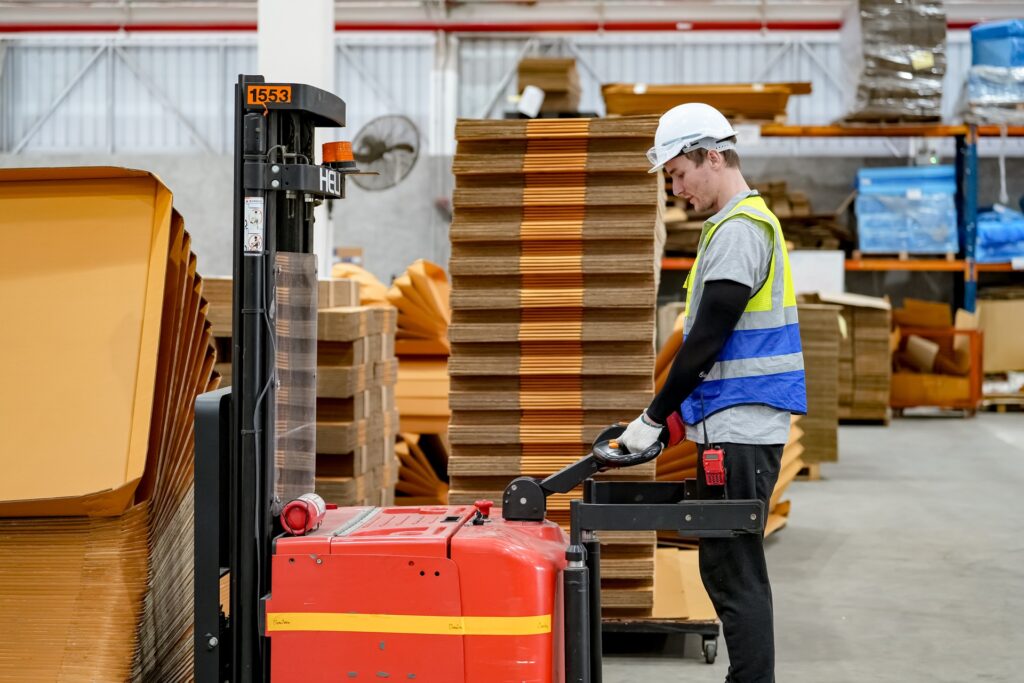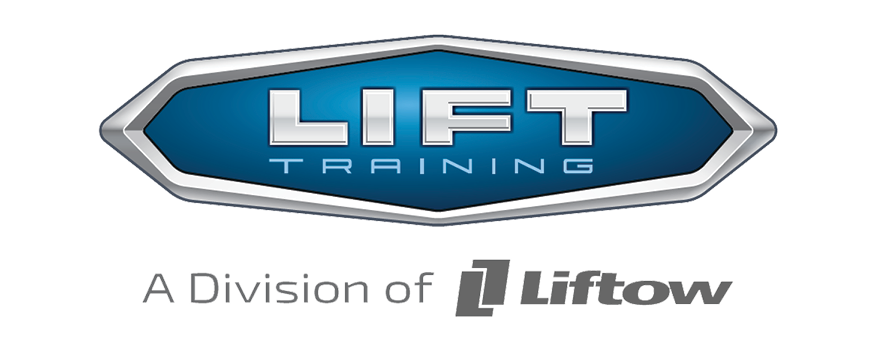
Safety in the workplace is a top priority for any business, especially when it involves heavy machinery like electric pallet jacks. These powered tools are common in many warehouses and distribution centres, used to move heavy loads quickly and efficiently. However, without proper training, they can pose significant risks to both operators and those around them. Understanding how to use electric pallet jacks safely and effectively is crucial to preventing accidents and ensuring a smooth workflow.
In Canada, regulations mandate that employers provide adequate training for employees who operate electric pallet jacks. This training helps workers understand the mechanics of the equipment, recognise potential hazards, and follow best practices for safe operation. When employees are well-trained, they are more confident and competent, leading to fewer accidents and a more productive work environment.
Electric pallet jack training isn’t just about compliance; it’s about fostering a culture of safety. Proper training can significantly reduce the risk of injuries and property damage, saving businesses from costly downtime and liability issues. By investing in comprehensive training programs, companies demonstrate their commitment to their employees’ well-being and operational excellence.
Importance of Electric Pallet Jack Training
Training is essential for the safe operation of electric pallet jacks. These machines may seem straightforward, but they can be dangerous if used improperly. Proper training ensures that operators know how to handle the equipment safely, minimising the risk of accidents. Without adequate training, employees might misuse the pallet jack, leading to potential injuries or damage to goods and infrastructure.
The hazards associated with electric pallet jacks include tip-overs, collisions, and load spills. Untrained operators are more likely to encounter these issues, which can result in serious injuries or even fatalities in extreme cases. By providing thorough training, employers can ensure that operators understand the risks and know how to mitigate them. This proactive approach not only protects workers but also boosts overall workplace safety.
Key Components of Effective Electric Pallet Jack Training
A comprehensive electric pallet jack training program should include several essential elements. First, it must cover the basics of operating the equipment, including how to start, steer, and stop the pallet jack. Trainees should also learn about the specific functionalities of different models and types of pallet jacks.
Theoretical knowledge is just one part of effective training; practical skills are equally important. Hands-on training allows operators to practice manoeuvring the pallet jack in a controlled environment, helping them gain confidence and proficiency in handling the equipment. Additionally, the program should emphasise safety protocols such as inspecting the pallet jack before use, understanding load limits, and navigating safely in tight spaces.
Training should highlight regulatory requirements and best practices. This includes understanding occupational health and safety regulations and how they apply to pallet jack operations. By incorporating these elements, the training program ensures that operators are skilled and compliant with legal standards.
Importance of Electric Pallet Jack Training
Training is crucial for the safe operation of electric pallet jacks. These machines, while efficient, pose risks if not handled properly. Well-trained operators understand the machine’s mechanics, how to manoeuvre it safely, and how to recognise potential hazards. This knowledge helps prevent accidents, which can cause serious injuries and disrupt workplace operations.
Without proper training, the risks increase significantly. Operators may mishandle the pallet jack, leading to tip-overs, collisions, and load spills. These incidents can result in injuries or even fatalities. Additionally, improper use of electric pallet jacks can damage goods and infrastructure, leading to costly repairs and downtime. By providing comprehensive training, we can equip operators with the skills and knowledge needed to use these machines safely and effectively.
Electric pallet jack training also fosters a culture of safety. When employees understand the risks and know how to mitigate them, they are more likely to follow best practices consistently. This proactive approach protects workers and enhances overall workplace safety, productivity, and morale.
Key Components of Effective Electric Pallet Jack Training
A comprehensive electric pallet jack training program should include several key components to ensure operators are well-prepared. First, the program should cover the pallet jack’s basic operations, including starting, steering, and stopping the machine. Trainees should also learn about different models and their specific functionalities.
Effective training combines both theoretical knowledge and practical skills. Theoretical components should cover safety protocols, load limits, and navigation tips. Trainees need to understand the physics behind load stability and the importance of regular equipment inspections. This theoretical base ensures that operators know the basics before they start handling the equipment.
Practical training is equally important. Hands-on sessions allow trainees to practice manoeuvring the pallet jack in a safe, controlled environment. This helps them gain confidence and proficiency. They learn how to navigate tight spaces, handle different types of loads, and respond to potential hazards. Real-world practice is invaluable for preparing operators to handle the daily challenges they will face on the job.
Additionally, the training program should emphasise regulatory compliance. Operators must be aware of occupational health and safety regulations and how they apply to pallet jack operations. Ensuring that trainees understand and follow these regulations helps create a safer and legally compliant workplace.
An effective training program provides a balanced mix of critical knowledge and practical experience, preparing operators for safe, efficient pallet jack use.
Benefits of In-Person vs. Online Electric Pallet Jack Training
Choosing between in-person and online electric pallet jack training involves weighing the pros and cons of each format. In-person training offers the advantage of direct, hands-on experience. Trainees can practise operating the pallet jack in real-time, under the watchful eye of an experienced instructor. Immediate feedback and the ability to ask questions on the spot can significantly enhance learning. This method also allows for more thorough practical assessments, ensuring that trainees are fully competent before they start working.
However, in-person training can be less flexible. Scheduling sessions might be challenging, especially for companies with varying shifts or remote locations. Travel time and the need for physical presence can also add to the logistical complexities and costs.
Online training, on the other hand, offers greater flexibility and convenience. Employees can complete the theoretical parts of the training at their own pace and on their own schedule. This format can be cost-effective and scalable, making it easier to train large groups of employees. Online programs often include interactive elements like simulations and quizzes to reinforce learning.
Nevertheless, the main drawback of online training is the lack of hands-on practice. While simulations can mimic real-world scenarios to some extent, they cannot fully replace the experience of handling a physical pallet jack. Therefore, a hybrid approach that combines online theory with in-person practical training might be the best solution for many businesses.
When choosing the training format, consider the specific needs of your team and the logistics involved. Both formats have their unique benefits, and the best choice will depend on balancing convenience, cost, and the need for practical experience.
Maintaining Certification and Continuous Improvement
Maintaining certification for electric pallet jack operators is crucial for ongoing workplace safety and compliance. Certification typically needs to be renewed every three years. The renewal process usually involves completing a refresher course, which updates operators on the latest safety guidelines and operational techniques. This ensures that all operators remain proficient and up-to-date with any changes in regulations or best practices.
To keep certification up-to-date, establish a system for tracking certification expiry dates. Digital record-keeping can streamline this process, making it easy to monitor when renewals are due. Ensure that reminders are sent out well in advance to schedule refresher courses.
Continuous improvement is vital for a safe and efficient workplace. Encourage employees to stay updated with the latest safety protocols and best practices by subscribing to industry newsletters, participating in workshops, or joining professional associations. Regularly scheduled safety meetings can also help keep the team informed and engaged in maintaining a culture of safety.
Promote an environment where safety is a shared responsibility. Encourage employees to report safety hazards and participate in safety audits. Recognise and reward those who consistently follow safety protocols and contribute to a safer workplace. By fostering a proactive safety culture, you can minimise risks and enhance overall efficiency.
Optimising Safety and Efficiency with Electric Pallet Jack Training
Enhancing workplace safety with electric pallet jack training is vital for any business that values its employees and aims for operational excellence. Proper training reduces the risk of accidents, ensures compliance with regulations, and fosters a culture of safety. Both in-person and online training options offer unique benefits, and the best approach depends on your specific needs and constraints.
Maintaining certification and promoting continuous improvement is critical to sustaining high safety standards. By investing in training and fostering a proactive safety culture, businesses can protect their employees and optimise efficiency.
For comprehensive electric pallet jack training and other safety programs, visit LIFT Training. Our expert trainers and state-of-the-art certification management systems can help you achieve safer and more efficient operations. Contact us today to learn how we can support your training needs.
